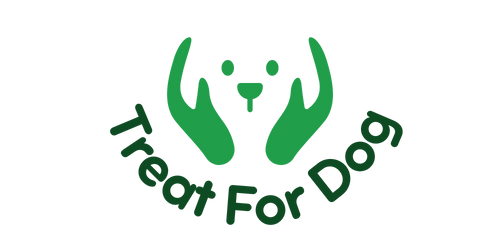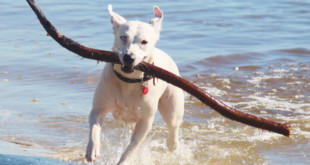How To Apologize When Your Dog Bites Someone – No one likes to think about their beloved fur baby biting someone, but accidents happen. Whether provoked or unprovoked, a dog bite can have serious consequences for both the victim and their owner. It’s important to take the situation seriously and handle it with maturity and responsibility. If your dog has ever bitten someone, or you fear it may happen in the future, there are steps you can take to apologize and make things right. Here’s a guide on how to apologize when your dog bites someone.
Table of Contents
1. The Importance of Taking Responsibility for Your Dog’s Actions
Dog ownership is a big responsibility, and part of that responsibility involves taking ownership of your dog’s actions. Here are a few reasons why it’s important:
- Safety: If your dog causes harm to another person or animal, whether intentionally or unintentionally, you are responsible for the consequences. This can include legal action, emotional trauma, and physical injury. Taking responsibility means doing what you can to prevent your dog from causing harm and taking appropriate action if an incident occurs.
- Community: When you own a dog, you become part of a larger community of dog owners and animal lovers. Taking responsibility for your dog’s actions means being a responsible part of this community. This includes things like cleaning up after your dog, respecting other people’s boundaries, and being aware of local laws and regulations regarding dogs.
- Training: If your dog has negative behaviors, like aggression or excessive barking, it’s important to take responsibility for addressing these issues. This may involve enrolling in obedience classes, working with a trainer, or making changes to your own behavior as an owner. Ignoring these issues can lead to more serious problems down the line.
In summary, taking responsibility for your dog’s actions is an important part of being a dog owner. It can help keep your community safe, strengthen your bond with your dog, and ensure that your dog is happy and well-behaved. Don’t underestimate the importance of being a responsible pet owner – it can make a big difference for both you and your furry friend.
2. Understanding the Severity of a Dog Bite Incident
Dog bites can range in severity from minor scratches to life-threatening injuries. It is important for dog owners and non-owners to understand the severity of a dog bite incident to appropriately address the situation and prevent future incidents.
Factors contributing to the severity of a dog bite include the size and breed of the dog, the location of the victim’s wounds, and the victim’s overall health. Small dogs may not cause significant damage compared to larger breeds with stronger jaws, while bites to the face or neck can be particularly dangerous. Additionally, those with weakened immune systems or underlying health conditions may experience more severe symptoms following a dog bite.
In some cases, a dog bite may not appear serious initially but can lead to complications such as infection or nerve damage. It is important to seek medical attention promptly after a dog bite to assess the severity of the injury and prevent future complications. Furthermore, can also help communities and authorities implement appropriate measures to prevent future dog-related incidents.
3. Crafting a Sincere Apology Following a Dog Bite
When a dog bites someone, it can be a traumatic experience for both the victim and the dog owner. It is important to take responsibility for the situation and offer a sincere apology to the victim. Crafting a sincere apology requires sensitivity and empathy. Here are some steps to follow:
1. Acknowledge the incident:
Start by acknowledging that the incident occurred and express empathy for the victim’s experience. Use phrases such as “I’m sorry that my dog bit you” or “I understand that it must have been a scary experience for you.”
2. Take responsibility:
It is essential to take responsibility for your dog’s actions without making excuses or deflecting blame. Use phrases like “I take full responsibility for my dog’s behavior,” or “It was my fault for not properly training my dog.”
3. Offer compensation:
While it is not always necessary, offering compensation can help show the victim that you are serious about making things right. This might include paying for medical bills, offering to replace damaged property, or even a small gift to show your appreciation for their patience and cooperation.
Remember, when , the most important thing is to be sincere. Show empathy and take responsibility for your dog’s actions. Your apology can go a long way in restoring trust and good will with the victim.
4. Practical Steps for Making Amends and Preventing Future Incidents
After acknowledging the harm caused, it’s essential to take action to repair the damage and prevent future incidents. Here are some practical steps you can take:
- Apologize and take responsibility: Express genuine remorse for any harm caused and take accountability for your actions. This includes acknowledging the effects of your actions on others and recognizing the harm caused.
- Offer to make things right: Actions speak louder than words, so offer to make amends and take steps to help those affected by your actions. This could include financial compensation or working towards a solution together.
- Learn and educate: Take the time to educate yourself about the issue and gain a deeper understanding of why your actions were harmful. Share what you’ve learned with others to prevent similar incidents from happening in the future.
By taking these practical steps, you can begin to repair the damage caused and prevent similar incidents from happening in the future. Remember, it’s essential to act with sincerity and intentionality, always keeping in mind the effects of your actions on others.
5. Seeking Professional Help for Aggressive Behavior in Dogs
If you notice that your dog is exhibiting aggressive behavior towards people or other dogs, it is important to seek professional help as soon as possible. Some dogs may become aggressive due to fear, anxiety, or territorial instincts, while others may have underlying medical issues that are causing them to behave aggressively.
There are several options available for getting help with aggressive dog behavior, including hiring a professional dog trainer or behaviorist, attending obedience classes, or seeking the advice of a veterinarian. A professional dog trainer or behaviorist can work with you and your dog to identify the underlying causes of the aggression and develop a customized training plan to help modify the behavior.
It is important to note that aggressive behavior in dogs can be dangerous, and should never be ignored or taken lightly. Seeking professional help is the best way to ensure the safety of both your dog and those around them. With the help of a trained professional, you can work to address your dog’s aggressive behavior and create a happier, healthier relationship between you and your furry friend.
Sometimes, we aren’t always able to make amends with the person that has been harmed by our pet. It is important to remember that apologising is about more than just making up for our mistakes – it is also about showing our awareness of others’ feelings and recognising when we have made a mistake. Apologising for our dog’s behaviour is a sign of respect, empathy and a commitment to being a responsible dog-owner. We owe it to our furry friends to do our best to ensure that they can enjoy their own lives without causing any harm to others.
 Treat For Dog – Brain Training for Dogs, Dog Training & Obedience Discover Treat For Dog and get your pup on the path to smarter, happier, and healthier living with brain training for dogs.
Treat For Dog – Brain Training for Dogs, Dog Training & Obedience Discover Treat For Dog and get your pup on the path to smarter, happier, and healthier living with brain training for dogs.




